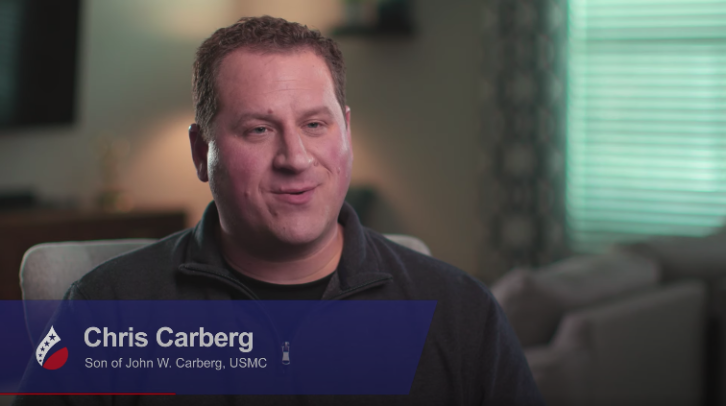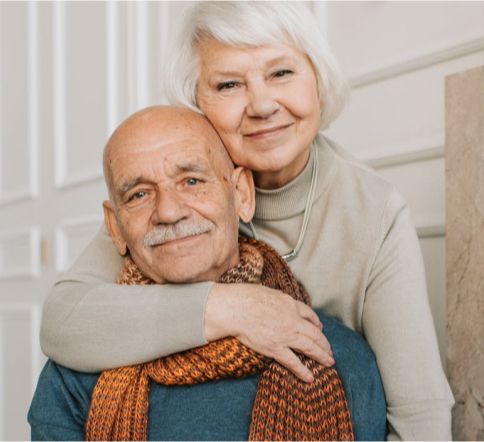Hear from our founder, Chris Carberg, on how losing his dad to Camp Lejeune bladder cancer became the driving force behind our relentless pursuit of justice for every Camp Lejeune victim. View Transcript.
I used to ask my dad, “What was it like when you were a Marine, or when you were formerly a Marine?” And he would correct me every time, he’d say, “You’re never formerly a Marine. It’s never something in the past. Once you’re a Marine, you’re a Marine for life.”
My name is Chris Carberg and my father was United States Marine John Carberg, who passed away from bladder cancer.
My dad was 17 years old when he joined the Marines. And his dad was a Marine, his brother was a Marine. It was something in our whole family that we were proud of. He lived on a military base.
My father was at Camp Lejeune for, I believe less than 60 days. He had no idea that there was anything wrong with the water.
And to think that people were spending their last moments, before they were deployed to dangerous situations, being poisoned is absolutely infuriating. We had families at Camp Lejeune. We had families on the base. We had mothers who were pregnant drinking that water.
What changed with the PACT Act and with the Camp Lejeune Act of 2022, is that for the first time, the government lowered and dropped its own immunity to being prosecuted. Veterans, their family members, they are able for the first time to file lawsuits against the government.
My dad never cared about his legacy, but what he cared about was his family. He cared about my mom, he cared about me and my sister. He cared about us. and I think that what he would want is what he always wanted. For his family to be taken care of, for my mom to be taken care of. My dad would never do something like this for himself, but he would do it for my mom in a heartbeat.
When my son and daughter ask me eventually, “What happened to Pop-pop?” I have to tell them the truth, which was that, “Well, Pop-pop was serving his country proudly. He did everything the right way, doing that that he could.” And now it’s our turn, it’s our turn to care for him and while he was sick and alive, we fought for him. We did our very best.
It’s our job as families to honor the memory of our loved ones by fighting on their behalf when they can’t fight for themselves anymore.

